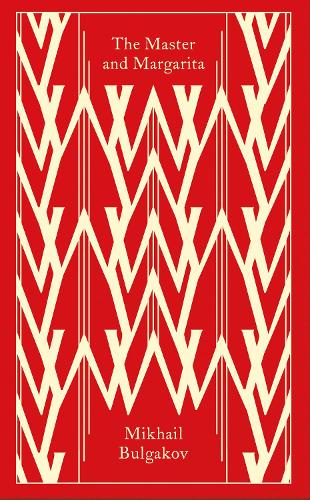
The Master And Margarita
(Hardback)
Available Formats
Hardback
Published: 29th May 1992
Hardback
Published: 6th June 2023
Paperback
Published: 26th July 2004
Paperback
Published: 2nd December 2021
Hardback
Published: 10th September 2019
Paperback
Published: 10th October 2007
Paperback
Published: 12th March 2019
Paperback
Published: 7th January 2010
Paperback
Published: 27th February 2017
Paperback
Published: 1st September 2018
Publishing Details
The Master And Margarita
By (Author) Mikhail Bulgakov
Penguin Books Ltd
Penguin Classics
6th June 2023
2nd March 2023
United Kingdom
Classifications
General
Fiction
Fiction in translation
891.7342
Physical Properties
Hardback
432
Width 138mm, Height 205mm, Spine 34mm
553g
Description
Mikhail Bulgakov's devilish salute to artistic freedom, now in a beautiful clothbound edition Written in secret during the darkest days of Stalin's reign, The Master and Margarita became an overnight literary phenomenon when it was finally published it, signalling artistic freedom for Russians everywhere. Bulgakov's carnivalesque satire of Soviet life describes how the Devil, trailing fire and chaos in his wake, weaves himself out of the shadows and into Moscow one spring afternoon. Brimming with magic and incident, it is full of imaginary, historical, terrifying and wonderful characters, from witches, poets and biblical tyrants to the beautiful, courageous Margarita, who will do anything to save the imprisoned writer she loves. Translated by Richard Pevear and Larissa Volokhonsky, with an Introduction by Richard Pevear
Author Bio
Mikhail Bulgakov was born in Kiev in May 1891. His sympathetic portrayal of White characters in his stories, in the plays The Days of the Turbins (The White Guard), which enjoyed great success at the Moscow Arts Theatre in 1926, and Flight (1927), and his satirical treatment of the officials of the New Economic Plan, led to growing criticism, which became violent after the play The Purple Island. He also wrote a brilliant biography of his literary hero, Jean-Baptiste Moli re, but The Master and Margarita is generally considered his masterpiece. Fame, at home and abroad, was not to come until a quarter of a century after his death at Moscow in 1940.
